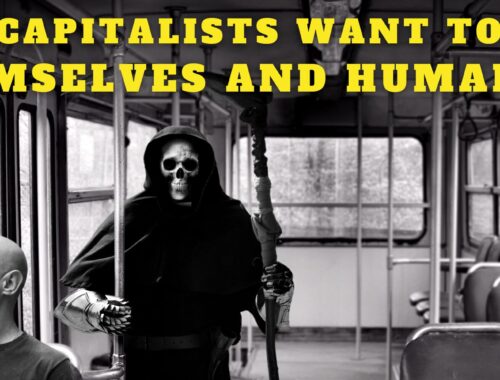
Building a continental counter-power against fossil capital
by Christian Zeller
- Introduction
When it comes to climate change, there is a huge gap between the strategies of the large corporations and the social movements. The large corporations design their strategies on a continental and global level. The social movements mostly organize on a local and national level.
But the international division of labour has deepened and widened considerably. Many people are mobile for different reasons and are connected to different social contexts. What has long been obvious is becoming an urgent necessity. All major social and ecological challenges must be tackled from a transnational and global perspective.
Social movements must organise themselves across national borders if they want to effectively change power relations. Determined transnational strategies are needed to effectively contain climate catastrophes. The climate movement and allied movements such as trade unions must pay the necessary attention to all levels of scale. This means considering the local and regional disputes as well as the national level, which is important for the political dynamics, and increasingly the continental and global processes, interdependencies and power structures.
In Europe, we face the methodological challenge of developing proposals for the European organisation of energy supply, the transport system, social insurance, the tax system, wage regulations and the conversion of environmentally harmful industries. These proposals must address current problems and at the same time point in a future of solidarity and the ecological transformation of societies in Europe, but always with a view to global justice and the universal equality of all people. The advancing European integration on a political, institutional, and economic level makes it necessary to promote an ecosocialist strategy and programme for the entire continent, but in a spirit of global solidarity and ecological responsibility.
- Why a European perspective?
I present some key arguments why the climate movement and the ecosocialist current need to develop a common European perspective and strategy.
The European states, together with the USA, Japan, Australia, New Zealand, and some rich oil-exporting countries, have borne the central responsibility for accumulated greenhouse gas emissions and global heating since industrialisation, and especially since the great acceleration of all kinds of economic processes and ecological destruction after World War II. This simple and consequential fact is still not really anchored in the consciousness of broad sections of the population and not even among left-wing organisations.
Some important and high-emission sectors of the economy have a network character, such as the energy industry and rail transport. Some are very capital-intensive and characterised by a logic of economies of scale in operating large plants, such as the steel, chemical, automotive and aviation industries. These production systems are concentrated in relatively few locations and their organisational structures have a high degree of centralisation. Their investments only pay off after many years. Their fixed capital characterises the innovation, production, and sales processes in their own and related industries for many years and even decades.
The economic and technological dynamics of these sectors are characterised by path dependent processes. This means that fossil structures are not only long-lived, but can only be broken up in large organisational and geographical contexts and through far-reaching changes of the societal and economic framework conditions.
The economic and technological dynamics of these sectors are characterised by path dependent processes. This means that fossil structures are not only long-lived, but can only be broken up in large organisational and geographical contexts and through far-reaching changes of the societal and economic framework conditions.
Measures to reduce greenhouse gas emissions must be aimed at changing the entire production system. Many relevant industrial processes can only be converted at a transnational or a continental level. Industrial restructuring and conversion can therefore not be conceived and realised within the boundaries of a nation state. Transnational measures to reduce emissions must be implemented.
Finally, we need strategies aimed at democratically controlling industrial restructuring, conversion and down-scaling.
At the European level, it is also much easier to realise measures in a perspective of global solidarity than in and through nation states.
The climate policy of nation states is not aimed at the rapid reduction of greenhouse gas emissions, but at the competitiveness and profitability of “domestic” companies. Any focus on defossiling individual national economies is therefore doomed to failure. The primacy of competitiveness also leads to a logic of externalisation and shifting the costs of avoiding emissions. Overall, this dynamic works against the reduction of greenhouse gas emissions at both global and continental level. For this reason, the measures must be designed and implemented on a continental basis, but in a perspective of global solidarity.
The EU’s climate policy and the so-called European Green Deal aim to strengthen the competitive position of corporations in Europe against their rivals in North America and Asia. Central EU regulations work against a socioecological restructuring of the economy in individual nation states and at European level. The neoliberal logic inscribed in the institutions of the EU can only be tackled jointly at European level. The European Green Deal lies in the continuity of the EU’s neoliberal architecture, albeit modified and adapted to the circumstances. For this reason, the EU cannot be the orientation framework for a socioecological transformation or even an ecosocialist rupture and upheaval. I explain this in the next section.
At this point, I would like to emphasise that I am explicitly addressing the continental level in a sense that connects societies from below. The EU is not Europe. The EU contains just over half the population of Europe. By far the largest city in Europe, and potentially the most important in class struggle, is Istanbul. The four large producers of fossil fuels in Europe are Russia, Britain, Ukraine, and Norway. None of them are in the European Union. They are central to any climate policy.
Moreover, Russia and Ukraine are both deeply dependent on fossil fuel income. Getting rid of fossil fuels would wreck the economies of both countries, but especially Russia. Pursuing its Energy Strategy 2035 the fascist Putin regime wants to continue and even expand oil and gas production in the coming decades in accordance. After the overthrow of this regime by the Russian and oppressed peoples, Russia and its neighbouring countries will need support from the other societies of Europe.
At the same time, for the reasons mentioned above, the necessary social counter-power against the power of capital can only be built on a continental level. However, as long as the climate movement, trade unions and social movements do not find a European strategy with concrete demands and organise themselves on a continental level, the forces that want to prolong the fossil development path will retain the upper hand.

- The European challenge
An ecosocialist orientation in Europe faces the challenge of understanding the character of the EU. The EU is a neoliberal and authoritarian construct at its foundation, in its DNA so to speak. Its primary goal is to strengthen the international competitiveness of corporations of the EU’s major economies. It is driving forward a neoliberal social reorganisation to create a strong European imperialist bloc to assert itself against rivals in North America and Asia and to enforce unequal relations with other parts of the world. The EU systematically subordinates social and environmental concerns to increasing competitiveness.
European integration was a central instrument for changing the social power relations in favour of capital and enforcing a finance-dominated accumulation regime. Since the 1980s, EU regulation has increasingly overshadowed regulation at national level and partially replaced it. The balance of power at national level deteriorated. Progressive social movements were less and less able to influence the policies of nation states. The decisive factor was that the regulation of monetary relations was Europeanised through the economic and monetary union. The European Central Bank acquired monetary and currency policy competences. EU primary law even enshrines its monetarist orientation.
The Stability and Growth Pact, which was initiated in 1997 and has since been deepened, substantially restricts the budgetary and economic policy of states under the primacy of limiting debt and combating inflation. It also exposes the member states to the disciplinary pressure of the financial markets.
This enforcement of market-liberal integration and regulation makes effective social, climate and environmental policy impossible. Should a single government wish to implement a radical socioecological programme, it would have no choice but to break with the EU and at the same time rely on international solidarity. The trade unions and environmental movements are hardly able to influence the decision-making processes of the EU Commission or the ECB at supranational level. Organising at European level is particularly resource-intensive. Trade unions and social movements have not been able making their voices heard at the European level directly, but only by exerting pressure on national governments.
Should a single government wish to implement a radical socioecological programme, it would have no choice but to break with the EU and at the same time rely on international solidarity. The trade unions and environmental movements are hardly able to influence the decision-making processes of the EU Commission or the ECB at supranational level.
The introduction of the EU Emissions Trading System is an expression of this approach. Governments cannot take consistent measures for environmental and climate protection that contradict the principles of free internal trade and subsidy restrictions. The EU deliberately does not introduce common social and environmental standards and minimum wages, and it opposes the harmonisation of corporate taxes. Instead, it institutionalises a race to lower standards and thus generalises social and environmental dumping.
The composition of the EU’s executive institutions is negotiated in a completely non-transparent manner among the governments of the powerful countries. They have no democratic legitimacy. Although the European Parliament is elected, it has little influence. The character of the EU is in stark contrast to a socioecological project.
The neoliberal organisation of the economy particularly affects the energy sector and makes defossilisation impossible. In the 1990s, the EU decided to break up the state monopolies in the energy sector and gradually open up the market to private companies. The neoliberal reorganisation has so far taken place in four packages.
The first package in 1998 required member states to set up wholesale markets for electricity and gas and to give consumers the choice of supplier. In doing so, the EU wanted to create integrated markets for electricity and gas on its territory.
The second package in 2003 allowed industrial and private consumers to freely choose their gas and electricity supplier from a wide range of competitors.
The third package took into account climate targets in addition to the aim of liberalising the energy market. It set the so-called 20-20-20 target for 2020. 20% reduction in EU greenhouse gas emissions compared to 1990, an increase in the share of renewable energies in the EU’s energy consumption to 20% and a 20% improvement in energy efficiency in the EU.
The Clean Energy Directive presented on 30 November 2016 represents the fourth package designed to make the EU energy sector more stable, competitive and sustainable. It aimed to increase energy efficiency, strived for global leadership in renewable energies and claimed to create fair offers for consumers. And the Energy Union Strategy combined the goal of creating an integrated European energy market with decarbonisation respectively with the perspective of complying with the agreements of the 2015 Paris Climate Conference. It shifted energy policy from the national to the European level to an even greater extent than before.
The European Green Deal launched by EU Commission President Ursula von der Leyen at the 24th World Climate Conference in Madrid in December 2019 and the Fit for 55 package (set of proposals to revise EU legislation) envisage a 55% reduction in greenhouse gas emissions by 2030 compared to 1990 levels. At the same time, they reaffirm the liberalisation policy of the fourth energy package. The goals sound ambitious and promise a green economy: a climate-neutral Europe, circular economy, building renovation programmes, preservation of ecosystems and biodiversity, regional agriculture, spending on research and development, etc. The Sustainable Europe Investment Plan is intended to help raise funds for the Green New Deal.
The central pillars of EU climate policy are the expansion of the emissions trading system and the market-based Carbon Border Adjustment Mechanism (CBAM) to prevent “carbon leakage” and protect EU industries against CO2-intensive imports. With the taxonomy for sustainable finance, the EU wants to incentivise investment in certain areas. Under pressure from France and Germany, it has absurdly included nuclear power and gas respectively in the “list of sustainable investments” (Achouche 2023). These initiatives claim to sufficiently decarbonise several key economic sectors such as energy, industry, and mobility. This also includes the development of independent European battery cell production and a hydrogen economy.
The European Green Deal and all these programmes are by no means aimed at the necessary industrial conversion. They are rather completely committed to the EU’s competition and growth strategy and are therefore diametrically opposed to a socioecological transformation. The EU wants to combine what it calls sustainable development with improving the competitiveness of the European economy and thus a pronounced growth policy. The European Green Deal does not touch on European rearmament or the expansion of airports and motorways. The expansion of emissions trading to outsource the reduction of emissions to countries where these efforts can be realised more cheaply due to low labour costs is a central component of EU climate policy. The EU institutions and their leaders have proven over the last four decades that they are unwilling or unable to tackle global warming. Despite its lofty promises, the European Green Deal fits in with this fundamental orientation.

The European Green Deal and all these programmes are by no means aimed at the necessary industrial conversion. They are rather completely committed to the EU’s competition and growth strategy and are therefore diametrically opposed to a socioecological transformation.
Despite this fundamental criticism of the EU, populations of states that are not currently members of the EU should have the right to join the EU. This can even improve the conditions for fighting together for social and ecological improvements, for challenging the EU and ultimately for implementing a joint socio-ecological transformation beyond the EU.
- Continental perspectives against, beside and beyond the EU
Despite the authoritarian, competitiveness-orientated integration of the EU, political and social disputes remain fragmented at a national level. To date, hardly any common civil society space on a European scale has developed for the realisation of social demands. This is due, on the one hand, to the fragmenting policies of the EU and, on the other, to the inability of progressive social movements to organise themselves across national borders.
Experience shows that the international dynamics of the climate movement also significantly influence its strength in individual countries. The balance of power can still be changed at a national level. At the same time, the international coordination of the movement, the organisation of joint learning processes across national borders and, finally, the development of transnational and European demands and concepts are crucial.
We therefore need a continental strategy and organising processes to drive forward joint mobilisations that also take account of national, regional and local circumstances and particularities. And these ambitions must include the populations outside the EU, not to forget those in Ukraine, Russia, Moldavia and Turkey. The concrete demands must be clear and simple and contribute to giving the climate movement a common political expression. The orientation must be one of global solidarity. This means developing shared continental perspectives with climate justice movements, struggles of workers, indigenous people, feminist initiatives and national minorities all over the world.
A radical programme for a socioecological transformation, let alone an ecosocialist upheaval, cannot be realised with the EU institutions. Instead, an ecosocialist strategy in Europe must fundamentally challenge the EU. The international expansion of large corporations and the transnational organisation of value chains require solidarity, ecological, and democratic concepts at transnational, European and global level. A fundamental social and ecological conversion programme can only be realised in a global perspective. For this we need the transnationalisation of anti-capitalist concepts and movements in order to replace neoliberal hegemony with socioecological hegemony.
Just as social power relations are expressed in the nation states, this is also happening in the EU. However, this does not mean that strong social movements in favour of a socioecological transformation or even an ecosocialist upheaval can gradually take over the institutions and use them to their advantage.
Just as social power relations are expressed in the nation states, this is also happening in the EU. However, this does not mean that strong social movements in favour of a socioecological transformation or even an ecosocialist upheaval can gradually take over the institutions and use them to their advantage.
Of course, it makes sense to gain influence in the EU institutions, for example by participating in the elections for the European Parliament, just as a presence in the national parliaments allows programmatic proposals to be introduced into the public debate. A parliamentary presence is helpful in making our voice heard in society. However, it is crucial that the various social movements of the working class build up their own structures in society and transnationalise them. At the same time, this involves the task of delegitimising the EU institutions and their leaders.
The idea of a democratic, solidary, and ecological Europe from below must be made concrete with a transition strategy. However, this can only be developed by processing the numerous experiences of the movements’ struggles. The foundation of such a strategy is the development of counter-power, which must be institutionalised in order to stabilise, underpin and ultimately enforce itself in the whole society. Through processes of democratic social appropriation of key industries, the energy sector and the financial industry, we need to establish our own organs of democratic control at all levels – from local to regional, national and European.
These structures must become so strong that they can force the governments and institutions of the EU to implement a socioecological transformation programme. If this countervailing power develops from below, it will not only contradict but also conflict with the existing institutions. This results in an unstable situation that can lead to the hitherto dominant organs of state power and the EU losing their shaping power.
In the current situation, how can we bring together the movements for a socioecological transformation transnationally and ultimately on a continental level?
Firstly, we need to raise awareness of the need for common strategies. Secondly, we should start to launch joint European campaigns. And thirdly, we need to consider how the movements can build concrete structures of social counter-power at European level. I am focussing here on the second level of joint campaigns.
In order to be effective with limited forces, it is necessary to focus on a few central disputes. The choice of fields is derived from the objective significance of the sectors for greenhouse gas emissions, their interdependence with other industrial sectors and their steering power. Of course, the state of discussion among activists and the subjective concerns of workers also influence which paths the climate movement takes.
A joint campaign should not only help to intervene effectively in the immediate day-to-day political disputes, but should also help to promote the networking and convergence of revolutionary eco-socialists. Based on some earlier contributions to the discussion, I think that joint activities and campaigns should focus on some interlinked thematic axes. Here I limit myself to reflections on the social appropriation of the energy sector.
- Social appropriation of the entire energy sector
The oil and gas companies and the downstream sectors closely linked to them, such as the automotive and energy industries, are among the most important and powerful fractions of capital. The coal, oil and gas deposits of the corporations are capital waiting to be valorised. Even under great political pressure, these corporations will not be prepared to forego the valorisation of this capital and the expected profits.
We are currently experiencing a counter-offensive by fossil capital. After several years of restraint, the major oil and gas companies have ramped up their investments again since 2021. According to the IEA, oil and gas consumption is set to increase further by 2030. The UNEP scenario even assumes that coal consumption will peak around 2030 and oil and gas only around 2050. These are scenarios of the planned destruction of the livelihoods of a third of humanity in five decades. The managements of the major oil companies assume that oil and gas consumption will increase significantly more and for longer. Chevron CEO Mike Wirth speaks plainly and rejects the IEA’s scenarios: “I don’t think they’re remotely right . . . You can build scenarios, but we live in the real world, and have to allocate capital to meet real world demands.”.
How should the climate movement and ecosocialists react to this declaration of war? Coal, oil and gas must remain under the ground. But that would amount to a gigantic devaluation of capital. The fossil fuel companies will never accept that voluntarily. Only if we succeed in socially appropriating the energy companies will it be possible to enforce this devaluation against the wealthy and in the interests of the working-class majority of the population, without mass unemployment and impoverishment. The challenges of political and social power as well as property must be tackled head-on. Only a broad social movement that includes most workers will be able to build social and political power relations that allow to socially appropriate the fossil fuel companies and smash their power. At the same time, we need to look at the financial sector and pension funds. The capital-based pension systems are a central pillar of fossil capital. Defossilisation goes hand in hand with the conversion of capital-based to public pay-as-you-go pension systems.
However, the social appropriation of the entire energy sector does not yet solve the problems, but only creates the conditions for enforcing comprehensive de-fossilisation at all. As fossil capital is highly centralised and organised in large transnational corporations, social appropriation becomes a comprehensive challenge that can only be tackled at a transnational and continental level.
How can a democratic socialisation be realised transnationally? An important step in this direction is to build a broad social alliance to launch a European campaign for the social appropriation of the entire energy sector, from energy production, over storage and transmission to the supply of households and businesses. At the same time, we must fight at regional and national level to ensure that the basic supply of energy becomes part of a social infrastructure. Access to energy for everyday needs must not be dependent on a person’s social position and class affiliation. The ecosocialist currents in the various countries should work together for building such an alliance.
the social appropriation of the entire energy sector does not yet solve the problems, but only creates the conditions for enforcing comprehensive de-fossilisation at all. As fossil capital is highly centralised and organised in large transnational corporations, social appropriation becomes a comprehensive challenge that can only be tackled at a transnational and continental level.
The perspective of social appropriation of the energy sector thus combines local and regional disputes over the control and organisation of local energy providers with the concern to bring the entire energy value chain under the democratic control of society. However, because this industry is so transnationally organised, the question also arises as to whether and how forms of social ownership can be developed in the future that extend beyond the borders of the nation state. This would amount to a transnational socialisation and European form of public property.
The most urgent task now is to broaden the climate justice movement into a comprehensive social movement for a socio-ecological transformation. It must embrace all the key concerns of workers in their workplaces, homes and everyday lives, but in a way that aims to achieve an ecologically compatible social metabolism with nature. To advance this orientation, it is necessary to build a strong revolutionary ecosocialist current that takes up these challenges and helps to broaden and radicalise the movement.

Literature
EC (2020): Sustainable Europe Investment Plan. European Green Deal Investment Plan;Communication from the Commission to the European Parliament, the council, the European and social committee and the committee of the regions, 14.1.2020, European Commission: Brussels, 24 S.
Edgecliffe-Johnson, Andrew und Smyth, Jamie (2023): Chevron’s Mike Wirth: ‘We are not selling a product that is evil’. Financial Times, October 23, 2023. https://www.ft.com/content/1902a8ef-7078-47e2-8a62-b6f0050ed569.
European Commission (2019): The European Green Deal. Communication from the Commission to the European Parliament, the European Council, the Council, the European Economic and Social Committee and the Committee of the Regions., 11 December 2019, European Commission,: Brussels, 24 S.
Forster, Piers M.; Rosen, Debbie; Lamboll, Robin und Rogelj, Joeri (2023): What the tiny remaining 1.5C carbon budget means for climate policy. CarbonBrief 11 November 2022. https://www.carbonbrief.org/guest-post-what-the-tiny-remaining-1-5c-carbon-budget-means-for-climate-policy/.
Götz, Roland (2020): Russlands Energiestrategie bis zum Jahr 2035: Business as usual. Russland-Analysen (386) 27.04.2020, S. 8–12. https://www.laender-analysen.de/russland-analysen/386/russland-energiestrategie-2035/.
IEA (2023): World Energy Outlook 2023, November 2022, International Energy Agency: Paris, 522 S. https://www.iea.org/reports/world-energy-outlook-2023.
Lamboll, Robin D., et al. (2023): Assessing the size and uncertainty of remaining carbon budgets. Nature Climate Change 2023/10/30. https://doi.org/10.1038/s41558-023-01848-5.
Sablowski, Thomas; Schneider, Etienne und Syrovatka, Felix (2022): Krise und Regulation des Kapitalismus in der Europäischen Union. PROKLA. Zeitschrift für kritische Sozialwissenschaft 52 (2 (207)) 05/11, S. 231-252. https://www.prokla.de/index.php/PROKLA/article/view/1991.
Stützle, Ingo (2014): Austerität als politisches Projekt. Von der monetären Integration Europas zur Eurokrise. 2. korr. Auflage. Münster: Verlag Westfälisches Dampfboot, 399 S.
UNEP (2023): Phasing down or phasing up? Top fossil fuel producers plan even more extraction despite climate promises. ;Production Gap Report 2023, 8 November 2023, U. e. programme: Nairobi, 117 S. https://productiongap.org/2023report/.
Yurchenko, Yuliya (2020): The Energy Sector and Socio-Ecological Transformation: Europe in the Global Context. Journal für Entwicklungspolitik 36 (4), S. 155-176.
Zeller, Christian (2020): Revolution für das Klima. Warum wir eine ökosozialistische Alternative brauchen. München: Oekom Verlag, 248 S.
Zeller, Christian (2021): Revolutionary Strategies on a Heated Earth. Responding to Non-linear Developments in Condensed Time. Spectre Journal. December 31, 2021. https://spectrejournal.com/revolutionary-strategies-on-a-heated-earth/. Zugriff
Zeller, Christian (2023a): Fossile Gegenoffensive – Grüner Kapitalismus ist nicht in Sicht. emanzipation – Zeitschrift für ökosozialistische Strategie 7 (2), S. 221-252. https://emanzipation.org/2023/08/fossile-gegenoffensive-gruener-kapitalismus-ist-nicht-in-sicht/.
Zeller, Christian (2023b): Fossil counter-offensive. Investment in fossil infrastructure increases again. Fight the Fire – Ecosocialist Magazine (5) June 2023, S. 3-14. https://www.fighthefire.net/wp-content/uploads/2023/06/FTF5-2.pdf.





